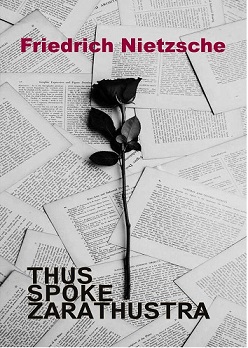

That Nietzsche, like Kierkegaard, the German Romantics, and many of the twentieth-century Existentialists, thought philosophy and literature were ultimately inseparable arts only further complicates the translator's task. Literature doesn't have only a sense, it also has a sound.


And you can't translate literature literally and have it work out well. While it is an undeniably philosophical work - Nietzsche, the most widely influential philosopher of the past two hundred years, considered it his masterpiece - it is also a work of literature. With a traditional philosophical text the translator's conscience is driven by accuracy, and when in doubt the translator will be as literal as possible. Thus Spoke Zarathustra (hereafter TSZ) is a difficult book to translate.


 0 kommentar(er)
0 kommentar(er)
